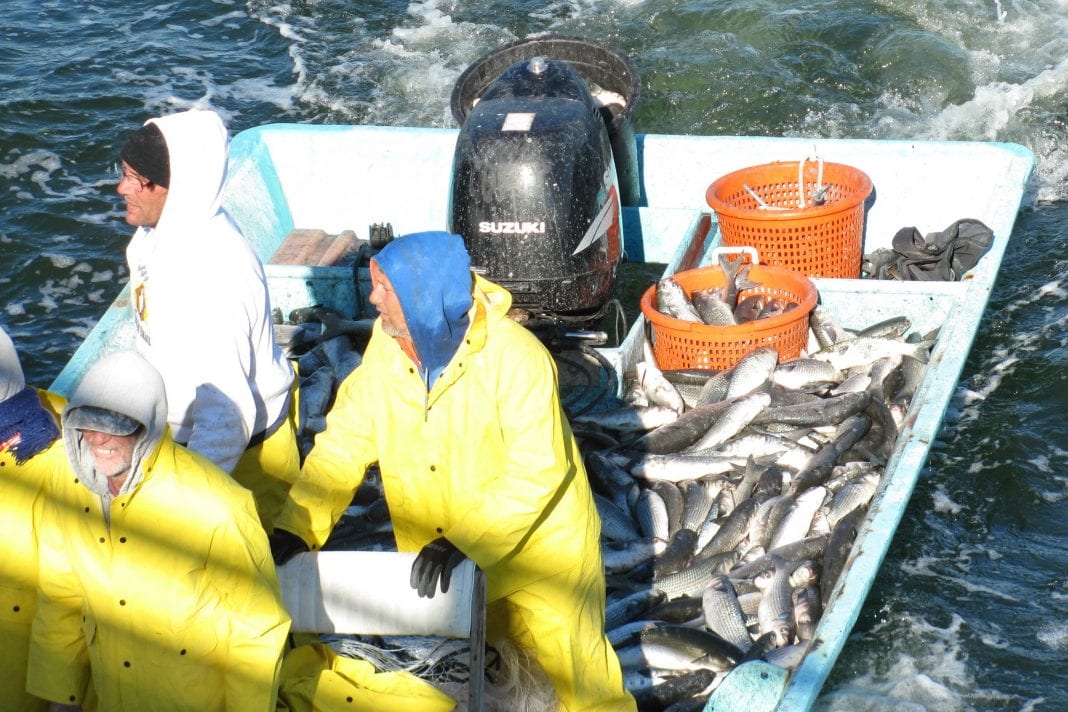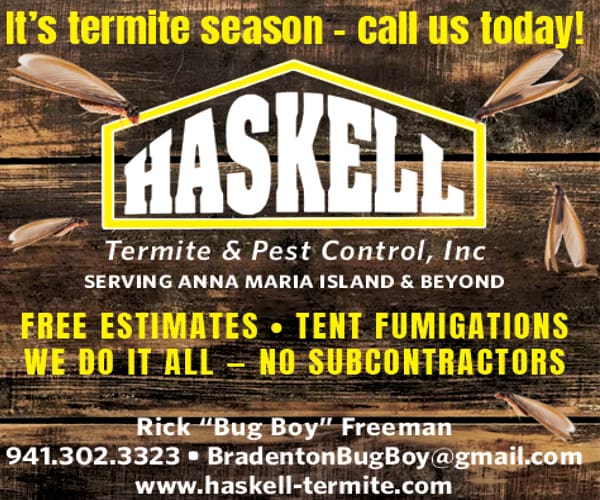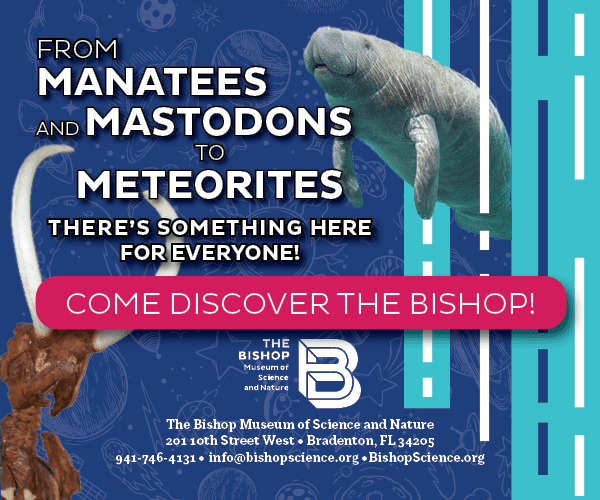Second in a series of three
CORTEZ – The wind is screaming, the Gulf of Mexico is frosted with whitecaps, and it’s so cold the pelicans aren’t even bothering to trail the bouncing mullet boat just offshore.
But there they are, a couple of guys in yellow oilers and white boots, with leathery skin and hands tough as nails, making a living the old, hard way.
Cortez commercial fishermen are determined to follow in the wake of their great-great-great grandfathers, who settled Hunter’s Point from Carteret County, N.C. in the 1800s.
There are easier ways to make a living.
Commercial fishing is the third deadliest job in America after firefighters and loggers. Boat-battering storms and fish-killing pollution and red tide make it harder. Regulations have made it almost impossible.
Stop nets and gill nets are banned and longlines are heavily regulated. It takes a team of lawyers to interpret the constantly changing rules on closed seasons and fishing quotas and catch shares. Some fisheries, like bay scallops, are closed completely.
Yet, Cortez fishermen are keeping the last two of the village’s original five fish houses in business.
Staying afloat
At the A.P. Bell Fish Co., a fisherman tosses mullet fat with roe onto the conveyor belt from the dock, where the Bell fleet is moored, a dozen boats all with the name “Belle” in them, mostly named after women in the family of founder Aaron Parks Bell.
In the parking lot, stone crabbers are building their traps. Chainsaw Charlie carves a totem pole while his dog rests in the shade of the Fishermen’s Memorial, which honors Cortez veterans lost during wartime and Cortez commercial fishermen lost at sea – three of them, Michael “Bugsy” Moran, Dale “Murph” Murphy and Frank “Billy” Tyne Jr., were immortalized in the film, “The Perfect Storm.”
Cortez is just the way Bell’s office manager, Karen Bell, likes it, full of characters who leave crab traps piled in their back yards and nets hanging like sheer laundry on a clothesline.
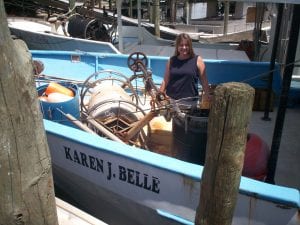
The Bell fish house has survived because it has adapted to changes in the fishing industry, Bell said, by catering to Asian tastes for roe and adding offshore boats to its inshore fleet when deepwater grouper became popular with diners.
At the other end of the village’s waterfront, Cortez Bait and Seafood is staying afloat specializing in bait fish.
Both process stone crab, grouper and other fish, but mullet is the fish that built Cortez.
This year’s mullet season, now winding down, was a record-breaker, the peak of a seven-year cycle, some say, or the result of fish swimming south to escape polluted waters from the Gulf oil spill of 2010, others speculate.
Boats overflowed, and for a moment, it was almost like the old days.
A brief history of Cortez
Prehistoric times – Indian tribes fish local waters
1400s – Spaniards discover the area, ship dried fish to Cuba, the Bahamas
Late 1800s – Fulford, Guthrie and Jones families settle Hunter’s Point from Carteret County, N.C.
1895 – U.S. Post Office renames Hunter’s Point Cortez
Early 1900s – Nate Fulford installs four-horsepower engine on a skipjack, the beginning of the end of sailboat and poling fishing
1912 – Cortez village incorporated; Cortez Rural Graded School opens
1920s – Cortez rum runners smuggle Cuban rum and Bimini whiskey during Prohibition
1921 – Hurricane strikes, destroying most of Cortez waterfront and half-built bridge to Anna Maria Island
1922 – Wooden bridge to AMI finished
1930s – Mullet disappear for eight years; during the Great Depression, Cortezians share ham bones with neighbors to flavor soup and beans rather than take government handouts
1940s – Fish houses built; 65 men and women enlist to serve in World War II
1947 – Catastrophic red tide kills fish
Late 1940s – Fishermen’s co-op formed
1953 – Stop nets banned; red tide strikes again
1960s – Monofilament nets invented, replacing cotton nets; kicker boats with outboard motors replace inboard motors, allowing fishermen into shallower waters; fish houses build commercial freezers, making shipments to Asia possible
1967 – Organized Fishermen of Florida (OFF) founded to fight proposed commercial fishing ban
1970s – Bay scallops nearly disappear from Sarasota Bay; bales of marijuana, or “square grouper,” smuggled through Cortez
1980s- New fisheries develop – grouper, baitfish, mullet roe
1994 – Fight over state Constitutional amendment to ban gill nets
1995 – Gill net ban takes effect
2003 – “Out of Time,” movie starring Denzel Washington, filmed at Cortez docks
2009 – Shinedown’s hit music video, “Second Chance,” filmed at Cortez docks
2010 – Longlines heavily regulated; individual fishing quotas (IFQs) implemented
2012 – 100th anniversary of village incorporation, 100th anniversary of Cortez schoolhouse, 30th anniversary of Cortez Commercial Fishing Festival
Good ol’ days
Thomas “Blue” Fulford learned to fish as a boy watching his uncle, Tink Fulford, who was known for being the hardest worker in five counties. He once poled a boat by hand 20 miles around Tarpon Key while everyone else was sleeping, looking for mullet.
Fulford misses seeing fishermen walking down to the docks carrying their paper sack lunches (fish and grits for breakfast, fish and grits for dinner, and leftovers for supper, he recalls). He misses the days when fishermen built their own boats, everyone went barefoot, no one locked their doors and none of the yards had fences.
“Everybody was kin,” said Fulford, president of the Organized Fishermen of Florida (OFF) for more than 20 years. “It was just heaven on earth.”
“I was never hungry even though it might be fried mullet six days a week” during the Depression, Mary Fulford Green said. “I was provided for as my father was a hard working fisherman. He had his own boat and crew when he was 14 years old.”
“A fisherman would walk down to the shore and would pass another fisherman coming in and the only thing they would say to each other is something like ‘oyt’ ” said Mark Taylor, whose grandfather, Alva Taylor, was one of the original settlers from Carteret County. “I said, ‘When I grow up, I’m going to say that,’ and I do.”
As a Cortez kid, Taylor shoveled fish, painted boat bottoms and started earning half shares, or wages, as a teenage crew member.
There was nothing like pulling against a net full of fish, and you could never get enough of it.
“You might fish night and day seven days a week, and what do you talk about when you’re not fishing? Fishing,” said Taylor, who treasures a photo showing him with a gill net full of mullet.
It’s not something the current generation will ever know.
The day the music died
“I was 45 when the net ban hit, in my prime. I had just hung a $10,000 net that had never been used,” said Taylor, former state director of OFF, which fought the gill net ban. I had a wholesale seafood trucking business, a purse seine boat and a gill net boat, and it just stopped cold. Suddenly, it was illegal.”
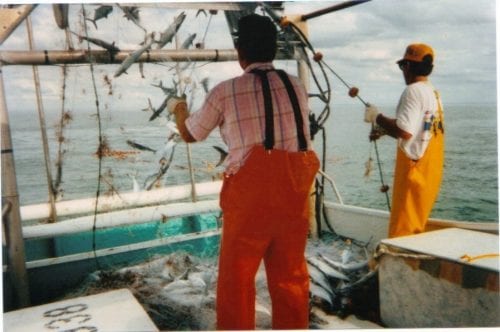
The battle between commercial net fishermen, who relied on fishing for their livelihoods, and recreational hook and line fishermen, who fished for fun, played itself out in the media.
OFF fought the ban in 1994, saying that recreational fishermen, among them, fisheries regulators, skewed estimates of fish stock to make it look like commercial fishermen were overfishing.
But voters, outraged at widely publicized photographs of dead dolphins and sea turtles supposedly killed by walls of gill nets, passed a state Constitutional amendment banning the nets.
“The net ban cut out a way of fishing and whether that was for the good or the bad, I’m not sure,” said Arnold “Soupy” Davis, still considered by natives as a newcomer to Cortez, having arrived in 1950. “But I totally disagree with how it was done. Having people believe in the ‘walls of death,’ that was an overexaggeration.”
“It was a brutal social conflict, hostile and dividing,” said J.B. Crawford, an author and Cortez commercial fisherman. “But the most bitter aspect was that commercial net fishermen mainly targeted mullet. The mullet is a vegetarian and does not bite a baited hook. The net ban protected fish not caught by hook and line, not targeted by sports fishermen.”
Some fishermen turned to cast nets to catch mullet, others started shrimping, trapping blue crabs and stone crabs or longlining grouper. Some became dock builders or dredge operators. Some went inland to work. Taylor joined the county parks staff, raking Anna Maria Island’s beaches.
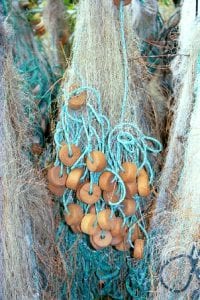
Deja vu
Another ban, in 1953, had put a stop to stop nets, which were placed at bayous and partially enclosed waters to trap nearly all the fish behind the nets as the tide went out.
The method created a large amount of bycatch, or trash fish, which many fishermen saw as ecologically unsound and a waste of natural resources, Crawford said, adding that the issue pitted stop netters against seine net, gill net, and trammel net fishermen.
In 2010, déjà vu happened all over again.
Longline fishing gear was all but banned due to bycatch, with only eight longline permits issued in Manatee County, according to Glen “Rabbit” Brooks, president of the Gulf Fisherman’s Association, who fishes under some of the permits.
It started with one fisherman snagging a loggerhead sea turtle on a longline and ended with a limit of 62 longline permits for the entire Gulf of Mexico.
While some commercial fishermen say they love sea turtles, and others say they love them for dinner, most agree that fishermen are environmentalists by necessity – they must conserve fish or they risk their future livelihoods and those of their children.
That future may be doubtful.
Forecast: partly cloudy
In recent years, the fierce independence of many fishermen has kept them at odds with each other, making them unable to fight united opposition, Fulford said, adding that in the old days, people pulled together like a crew on a net.
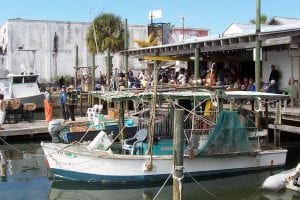
“It’s not cohesive like it used to be,” he said.
The most recent example is another new regulation launched in 2010, the individual fishing quota (IFQ) for commercially caught grouper, which has both fans and foes in the fishing community.
Patterned after a red snapper IFQ, and the precursor to planned IFQs for more species, the plan gives fishermen flexibility to fish when weather and market conditions are favorable, eliminating “derby” fishing, or having to fish in any conditions just to beat the catch limit quota for a particular fishery, according to Brooks.
“I’m strictly against the way fisheries management is going now,” Davis said. “Catch shares benefit a few large fishermen at the expense of the majority of small fishermen. A handful are producing the majority of the commercial catch.
A lot of boats are tied up down there now that aren’t going out.”
Davis bemoans the trend toward more regulations.
“Fishing is almost an assembly line now. It’s taking away all the stuff that we got in it for. We got in it because it was one of the last things you could be independent in and you didn’t have a lot of controls,” said Davis, who, at 85, “can’t fish as hard as I used to, but I can still fish.”
“Now they tell you when you can go, where you can go, how much you can catch, and what hooks you can use,” he said. “You’re nothing but a human robot.”
Next week: Is the future just a memory?
Related coverage















